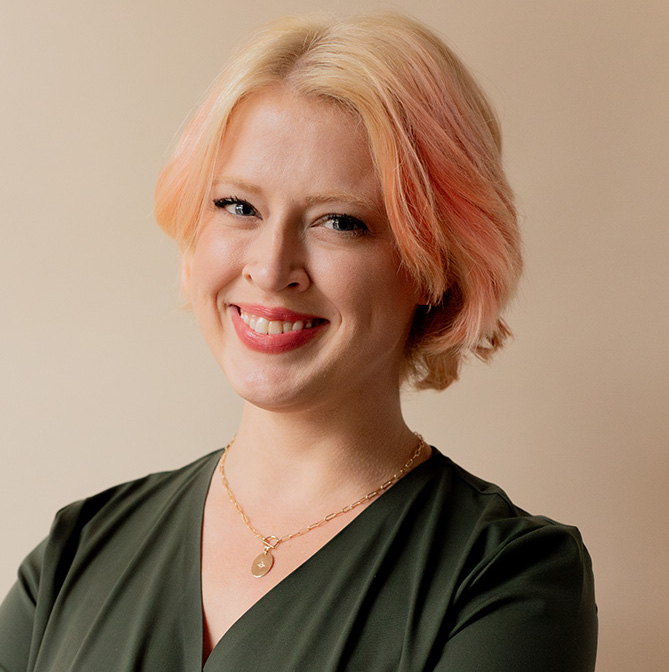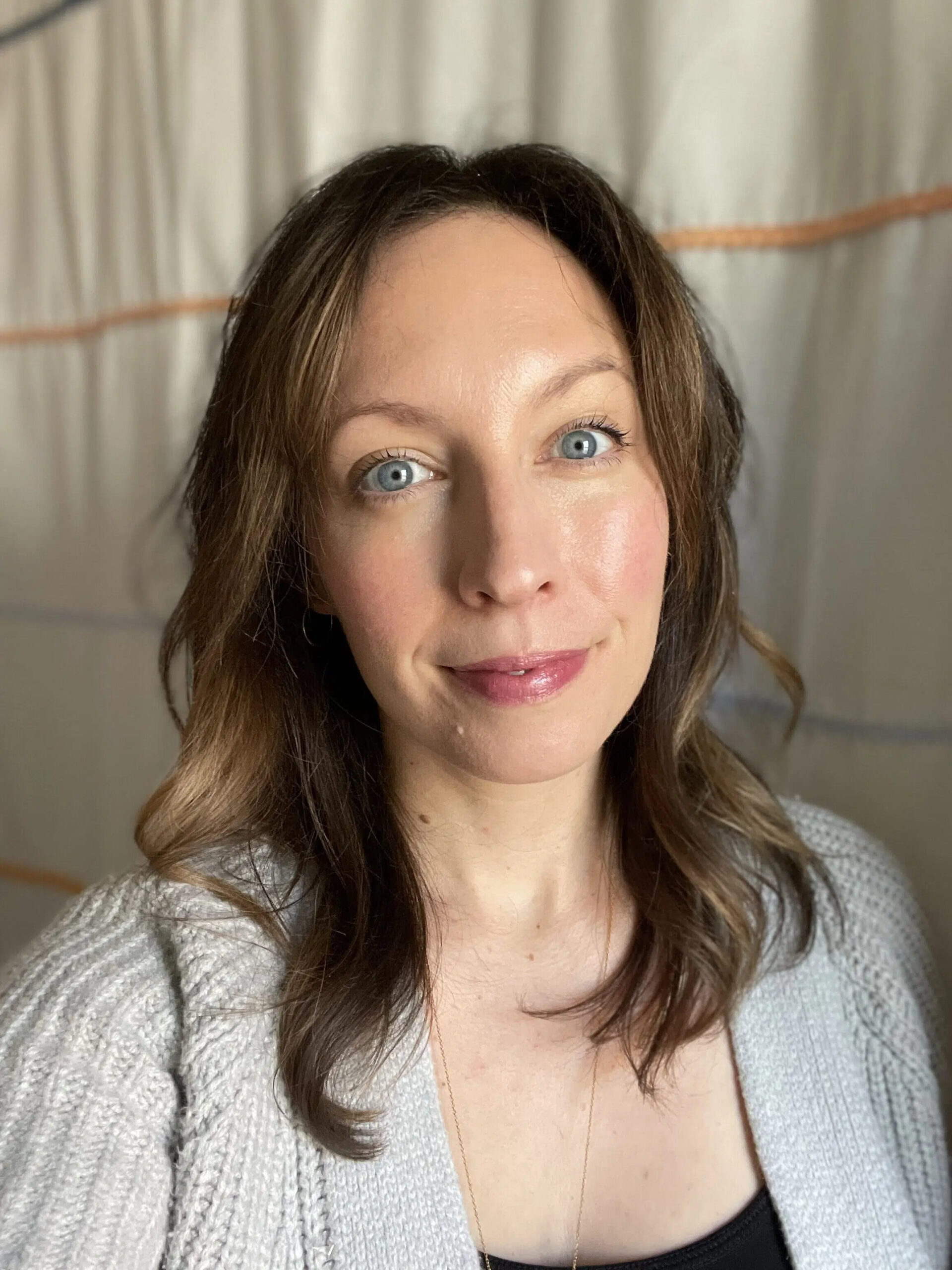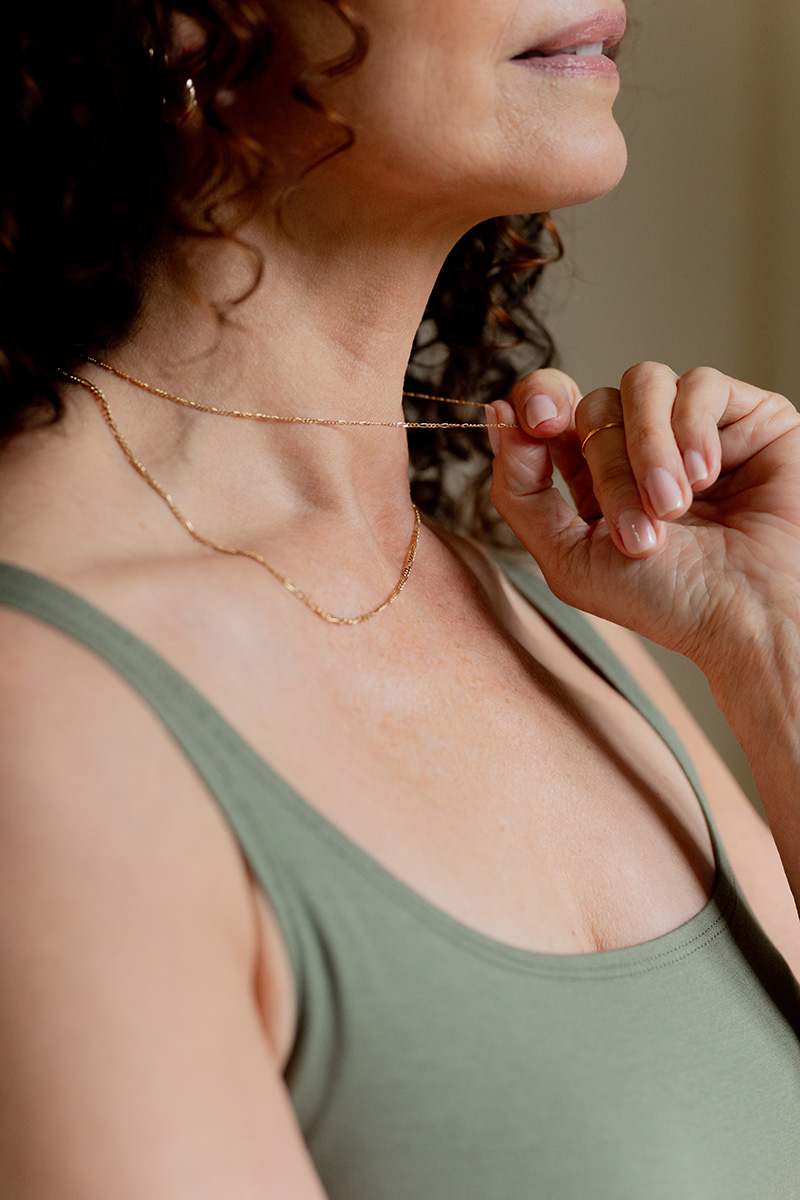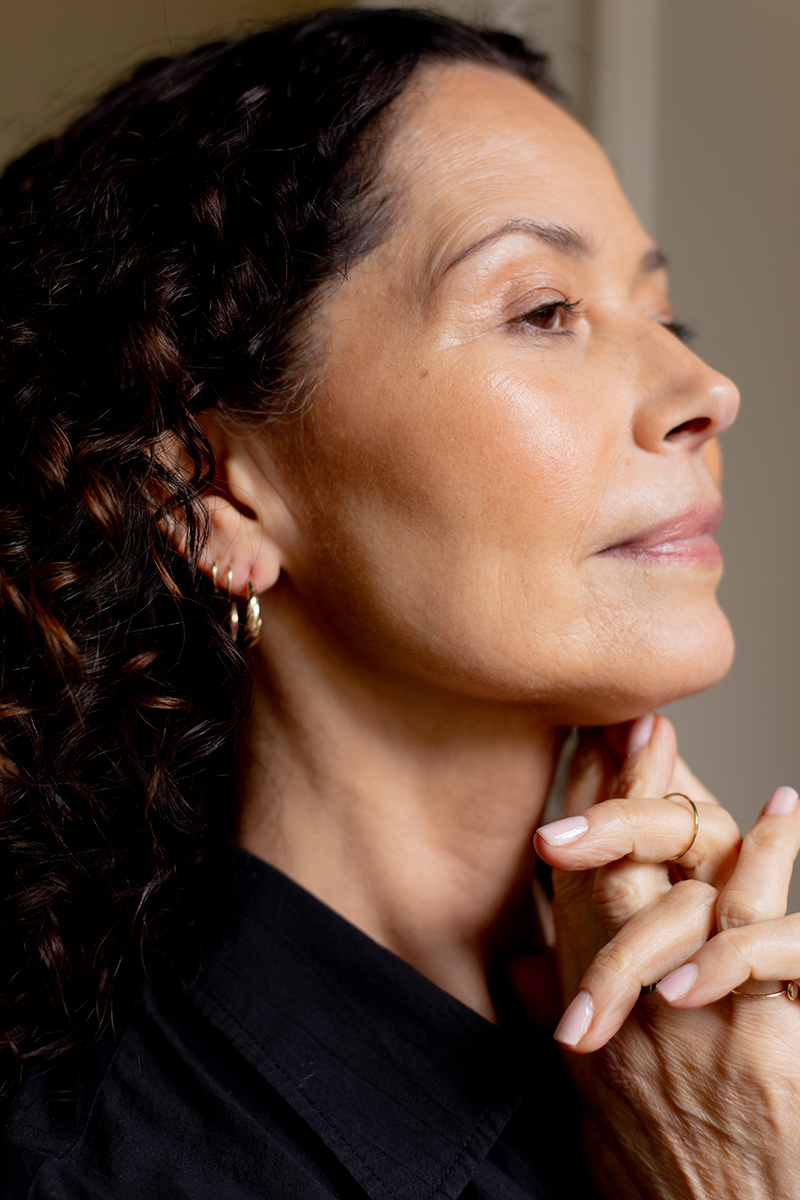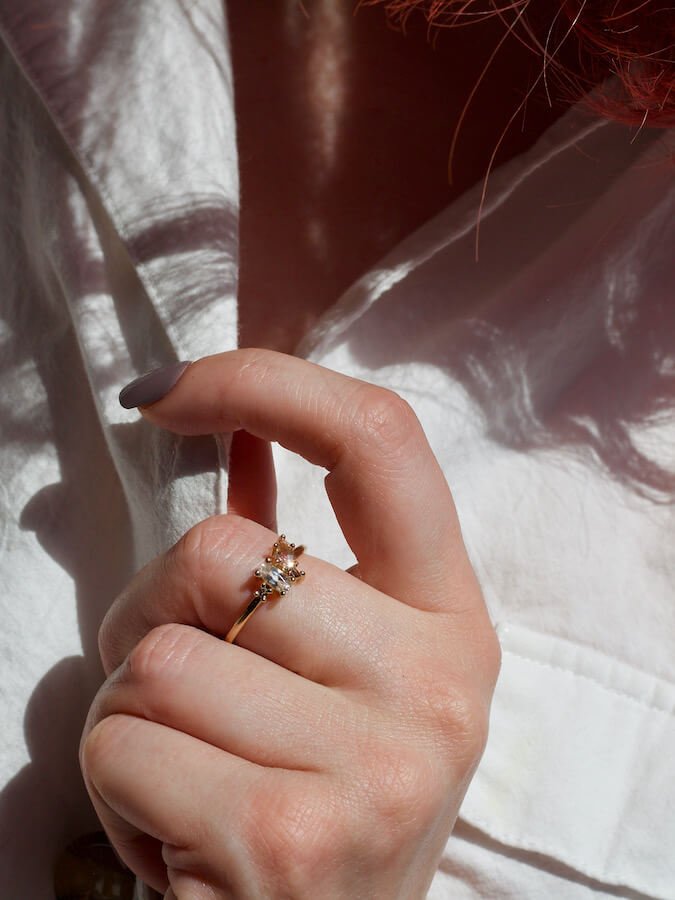
9 Questions To Ask When You’re Shopping For A Ring
The Good Trade editors endorse products we’ve personally researched, tested, and genuinely love. Learn more about our methodology and business model here.
“I think you’ll like it, it’s vintage-y floral,” read a text message from my now-husband. He was engagement ring shopping, and neither of us quite knew how to approach it — should we have gone together? Should it be a surprise?

Looking back, there are so many things we would have done differently — like discussing budget, sourcing, and diamond alternatives. (I might’ve been more vocal about my interest in pink sapphires instead of being swayed by “tradition”). I ended up with a beautiful and meaningful diamond ring — one that I also might not pick if I were to choose today.
So how do you actually get the ring that’s right for you? “I always guide people back to their intuition,” says Page Neal, the co-founder and lead designer at Bario Neal. She continues, “What’s the first [design] that comes to mind, or what is the stone that has always drawn you to it?” Neal, who founded Bario Neal with Anna Bario in 2008, believes that the way jewelry is sourced, designed, and worn can be a powerful part of our everyday lives.
And you don’t even have to wait for someone else — as Neal told me, “it’s a powerful thing to be able to buy jewelry for yourself.” (I myself thrifted a vintage pink sapphire ring a few years after I got married, to wear on my right hand ring finger.) Neal explained that jewelry can transport us and symbolize important moments that not many other items can necessarily do — and it’s okay to do that for ourselves.
Still feeling stuck on what to look for when you’re shopping for a ring, whether it’s for a loved one or for yourself? I chatted with Neal and tried on some Bario Neal favorites to find out what questions we might want to ask ourselves before, during, and after purchasing a ring.
1. What am I celebrating?
Maybe you’re celebrating an engagement, marriage, or anniversary, but rings that celebrate births or adoptions, promotions, or milestone birthdays can carry profound weight for some. Before you dive into shapes, stones, and colors, consider the intention behind the commemoration.

Some stones might feel more appropriate for different events — my pink sapphire ring symbolizes my commitment to myself and my gut instincts, and Neal wears gemstone rings that represent her children. Don’t get caught up in tradition if you don’t want to. Any style or stone can carry the meaning you assign to it.
You can also get a ring just because! But it’s important to consider our purchases carefully, and not opt for the cheapest, fastest option. (See more below on how to make sure your jewelry is sourced sustainably and responsibly).
“Before you dive into shapes, stones, and colors, consider the intention behind the commemoration.”
2. Which ring style do I like?
We can’t always put our preferences into words, so it can be helpful to follow what catches our attention visually instead. Scroll through Pinterest and page through magazines — are you drawn to solitaire diamonds, or do you get butterflies when you see a delicate pearl ring? Are you a fan of elegant vintage looks, or modern asymmetrical clusters?
When working with someone who’s undecided, the Bario Neal team presents several pieces as well as images of past custom jewelry. From there, they work forward from what the client likes, and backward from what they don’t. You can replicate this for yourself by adding every ring that evokes an initial “gut reaction” to a Pinterest board. Comb through your selections a few more times and remove any that don’t spark your interest, then look at what qualities the remaining rings share.
And you might even find your style changes once you see the ring in person! That’s okay. 😍 I’ve always been drawn to Bario Neal’s asymmetrical styles, and off-beat shapes, colors, and styles. But when I saw their pieces in person I was taken aback by the Avens Symmetrical Ring — one that is much more “traditional” than I usually lean towards. Basically, you might not know what you like until you see it in person.
And if you can’t see the pieces in person, ask your designer if they have a try-on feature online so you can get a feel for how the ring will look on your hand.
“It can be helpful to follow what catches our attention visually.”


3. When will I wear this ring?

You might be looking for a ring you never take off; or maybe you’ll wear it every few days or only on special occasions. Perhaps you wear gloves at work, or need to have a low-lying or no stone at all or need particular metal considerations. (Bario Neal’s Gale Rose Cut Champagne Diamond ring, pictured below, lies nearly flush to the skin and doesn’t have any sharp prongs or edges).
Ask yourself how frequently you plan on wearing the ring, and if the shape and style fit your lifestyle. If you’re wearing it every day, will it feel just as at home worn with denim and a t-shirt as it feels with an evening gown?
But Neal also reminds us that we don’t have to wear our rings every single day — especially if we’d like a little versatility. Importantly, she recommends choosing the ring you want and that inspires you, without compromises.
“If you’re wearing it every day, will it feel just as at home worn with denim and a t-shirt as it feels with an evening gown?”
4. Do I want to be surprised?
While an unexpected ring is a grand gesture, not everyone loves surprises. And not everyone can nail down their loved one’s style with certainty — so if you’re considering putting a ring on it, discuss your strategy with your partner!
If you go the surprise route, you can generally pick up a person’s ring size by measuring their existing rings (here’s a ring sizing guide). Then, let your jeweler know how your loved one dresses, accessorizes, and decorates — those things can guide you to styles they’ll find most enchanting. To top it all off, Neal recommends asking one of your loved one’s closest (and most stylish) friends to share their opinion on your selection.
If you don’t go the surprise route, selecting rings alongside another person can be an exciting adventure to share! You might even consider designing a unique ring together for an extra sentimental touch. Which brings up question number five.
“Let your jeweler know how your loved one dresses, accessorizes, and decorates.”
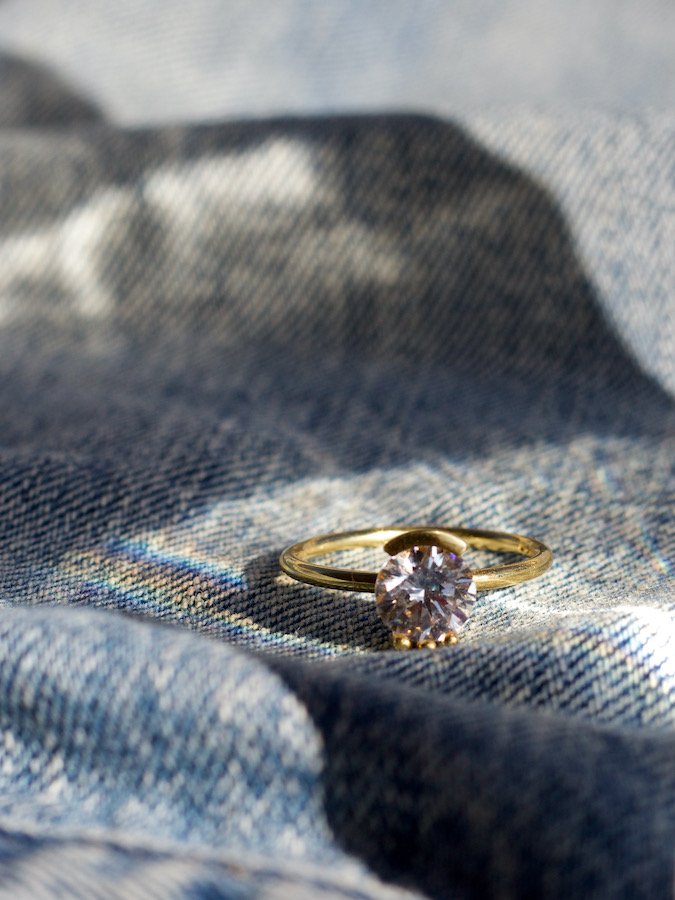

5. Or do I want to design it myself?
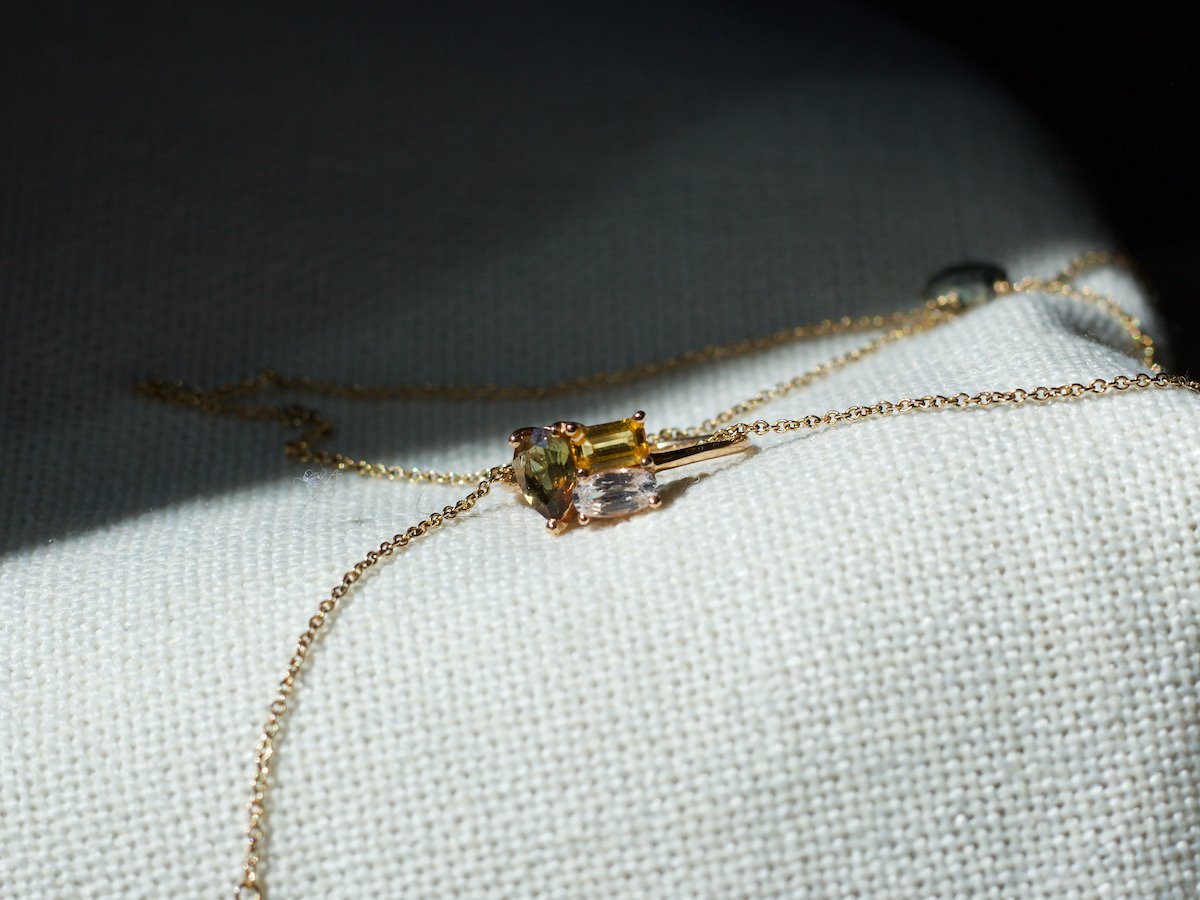
I love the idea of a custom ring based just on my personal preferences (I’ll take everything pink, please). But it’s an intimidating idea, to have a hand in creating an investment piece. But if you’re celebrating something specific, or have a stone you’d like to design around, you can always work directly with a designer to lay it all out just so.
Neal is inspired by her great grandmother’s and great aunt’s rings, and how those pieces and the stones they feature carry their rich history. But she’s also not wedded to keeping objects exactly how they’ve always been; there’s artistry in creating something new from an heirloom. (Which makes me think about the gemstone pendants I have that I’d like to repurpose into rings someday).
And a custom ring isn’t delivered sight-unseen. When Bario Neal creates a custom piece, they send renderings and gemstone layouts to make sure it’s exactly what their client wants. And to be extra sure, they print a physical wax of the ring so you can put it on and see how it’ll sit on your finger!
“We don’t have to keep objects exactly how they’ve always been; there’s artistry in creating something new from an heirloom.”
6. How much do I want to invest?
When it comes to engagement rings, the “general rule” is to spend two months of salary. Who came up with that rule? Frankly — the price tag matters less than finding the right ring (especially when you’re on a tighter budget).
Understanding how much you can spend can help direct you towards finding the best stones and metals as well. Gemstones, for example, can be more affordable than diamonds, and there are even stones like white sapphire that have a similar sparkle to diamonds (and morganite is great if you’re looking for a champagne color).
Remember, when you’re shopping online, that stones and metals don’t always get included in the list price until you select them as options. So play around with your options to find a price that works for you, or ask your jeweler about carat adjustments, stone alternatives, or metal swaps that can make the ring more accessible.
And don’t forget secondhand and vintage! You can also use vintage pieces or jewelry you already own to create something entirely new by opting for the customization I mentioned above.
“Ask your jeweler about carat adjustments, stone alternatives, or metal swaps.”
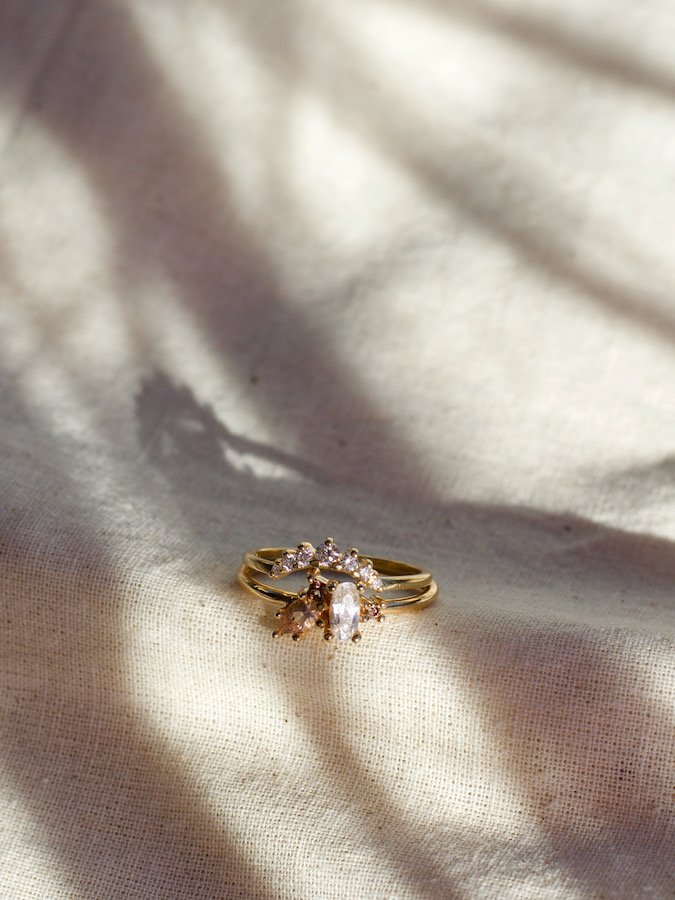

7. Do I trust my jeweler?
Maybe you’ve been working with a jeweler to decide all of the above (maybe not). But before you invest in a ring, make sure you trust the person or people making it.
Read through reviews on the site directly as well as third party ones, looking carefully for both product and personnel comments. Is the staff friendly? Are they pushy or regularly trying to upsell against their clients wishes? Do their custom orders get glowing reviews?
This is especially important when it comes to heirloom pieces or vintage treasures. For me and my husband, the jeweler “misplaced” the important gold band my diamond came from (an heirloom piece from one of his late family members). You have to know what securities are in place to protect your legacy items, or what steps will be taken if there is a complication.


8. Where are the materials sourced?
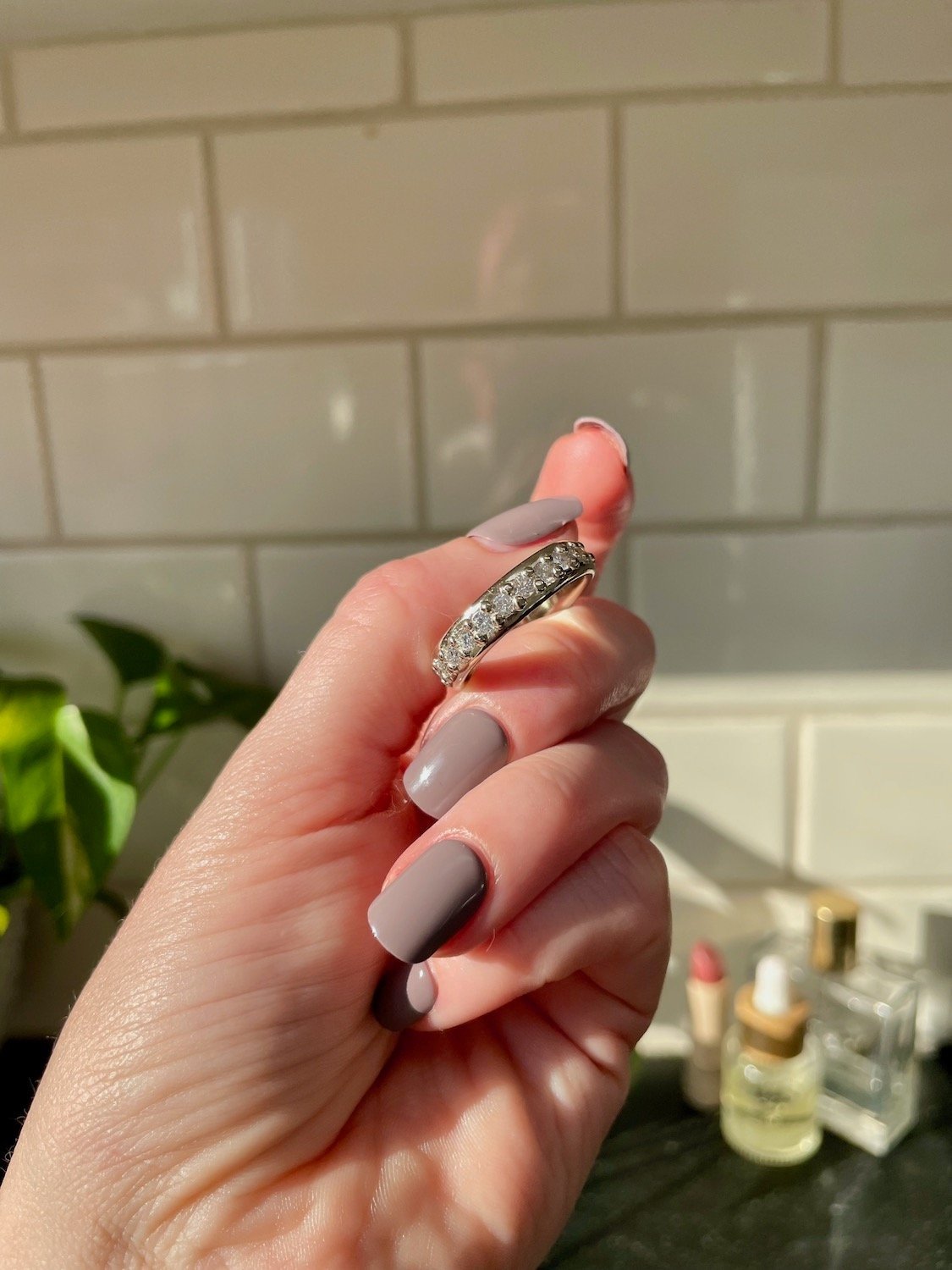
Speaking of trust, since jewelry can be a substantial purchase, we can ensure our money goes towards reducing harm — instead of causing it. Ask your jeweler what your ring’s story has been before you receive it, and even before they procured the materials. Where did the diamond come from, and is it certifiably traceable? Where did the metals or other gemstones come from, and were they harvested sustainably? What standards and protocol are in place for the workers who help create your jewelry?
What drew the Bario Neal founders to their work was the idea that the materials they work with intimately — and that people wear for the rest of their lives — can have problematic histories. If we’re allocating our spending towards something, Neal explained, it only makes it more meaningful to understand the environmental and human implications of the materials used to make it.
Bario Neal uses recycled metals and traceable diamonds and gemstones — meaning every piece they create contains many stories before it reaches your hand. I love the idea of carrying forward an object with an already rich history, so ask yourself “what story am I investing in with this ring?” (You can read more about Bario Neal’s ethics here).
“Bario Neal uses recycled metals and traceable diamonds and gemstones.”
9. How will I wear this ring in the future?
Finally — while you consider how much you’ll love the ring today, ask yourself how you’ll wear it in the future!

Will you eventually want to stack it? Are you interested in adding stones to it? Or, do you want the option to create matching earrings or a necklace later on? Are you planning on handing this down to family members in the future? Discussing these questions with your jeweler can help you make design and investment choices.
Ultimately, we won’t know what we’ll like in twenty years until we’ve arrived twenty years in the future. But, much like with anything else, we can invest in quality, thoughtfully made rings that carry powerful memories — and that will accompany us as we make new ones for years to come.
Like Neal told me, when it comes to finding the perfect ring, remember to trust your instincts. Your style is entirely your own — so own it. 💎
“When it comes to finding the perfect ring, remember to trust your instincts. Your style is entirely your own — so own it.”
Emily McGowan is the Editorial Director at The Good Trade. She studied Creative Writing and Business at Indiana University, and has over ten years of experience as a writer and editor in sustainability and lifestyle spaces. Since 2017, she’s been discovering and reviewing the top sustainable home, fashion, beauty, and wellness products so readers can make their most informed decisions. Her editorial work has been recognized by major publications like The New York Times and BBC Worklife. You can usually find her in her colorful Los Angeles apartment journaling, caring for her rabbits and cat, or gaming. Say hi on Instagram!
